Depression is a complex and often overwhelming condition, impacting millions of people worldwide. While some can manage symptoms with general treatment, others require specialized depression care tailored to their unique needs, background, and experiences.
Specialized depression treatment offers a focused approach, designed to address depression from multiple angles for sustainable relief and recovery.
But what exactly does “specialized depression treatment” mean, and how can it make a difference in your journey? Specialized depression treatment is a customized approach to managing depression that considers your specific circumstances, symptoms, and challenges. Unlike traditional methods, which may use a one-size-fits-all approach, specialized treatment tailors therapies and support to meet the unique needs of each individual. This form of treatment often includes comprehensive evaluations, a mix of evidence-based therapies, lifestyle modifications, and personalized care plans.
For those facing depression alongside other health issues, trauma, or significant life stressors, specialized treatment can provide targeted tools to address these factors. This approach increases the likelihood of long-term recovery by focusing on what will truly benefit the individual.
While anyone can benefit from personalized care, specialized depression treatment is particularly beneficial for those who have:
Call for Help Today:

If you’re currently struggling with drugs or alcohol, that addiction is life threatening. Drug and alcohol detox gets you clean or sober, using either a social approach where you quit and go through withdrawal, or a medication assisted treatment program.
Asana Recovery uses both options, which will be recommended based on the amount of substance you’re using, which substances you’re using, and your mental and physical health.
Detox normally involves staying at our clinic where you can be monitored and given the medical attention to move through withdrawal safely.
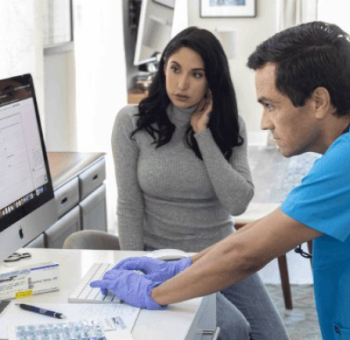
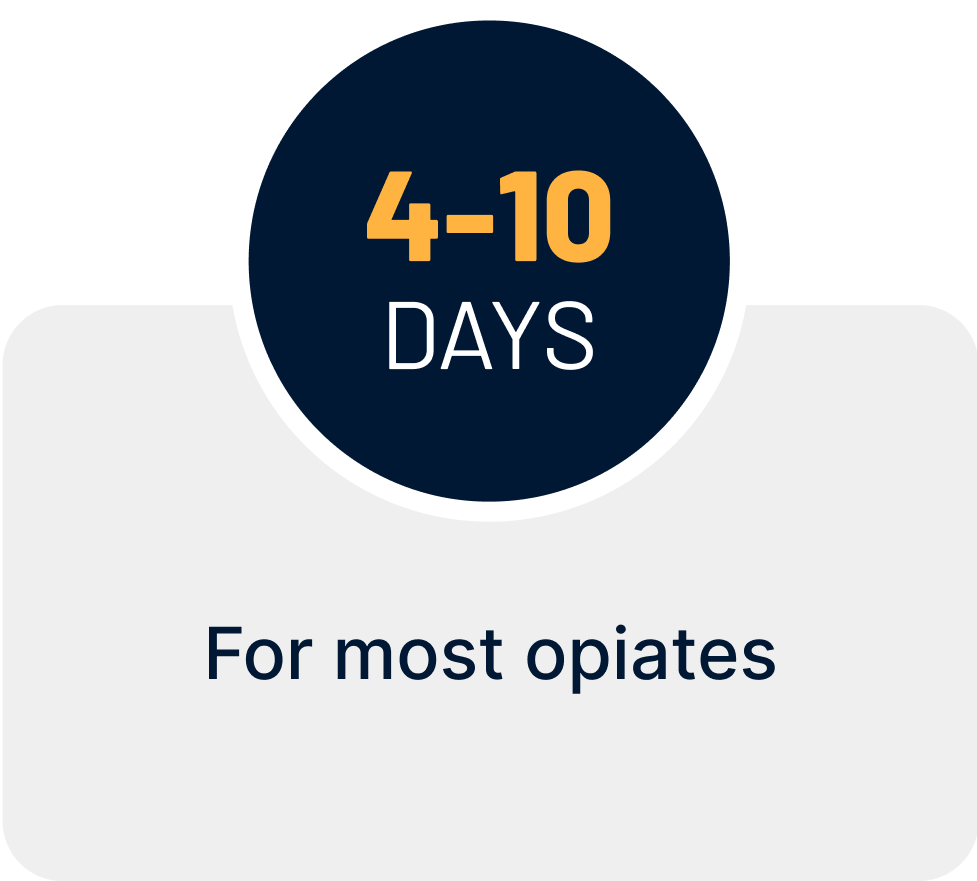
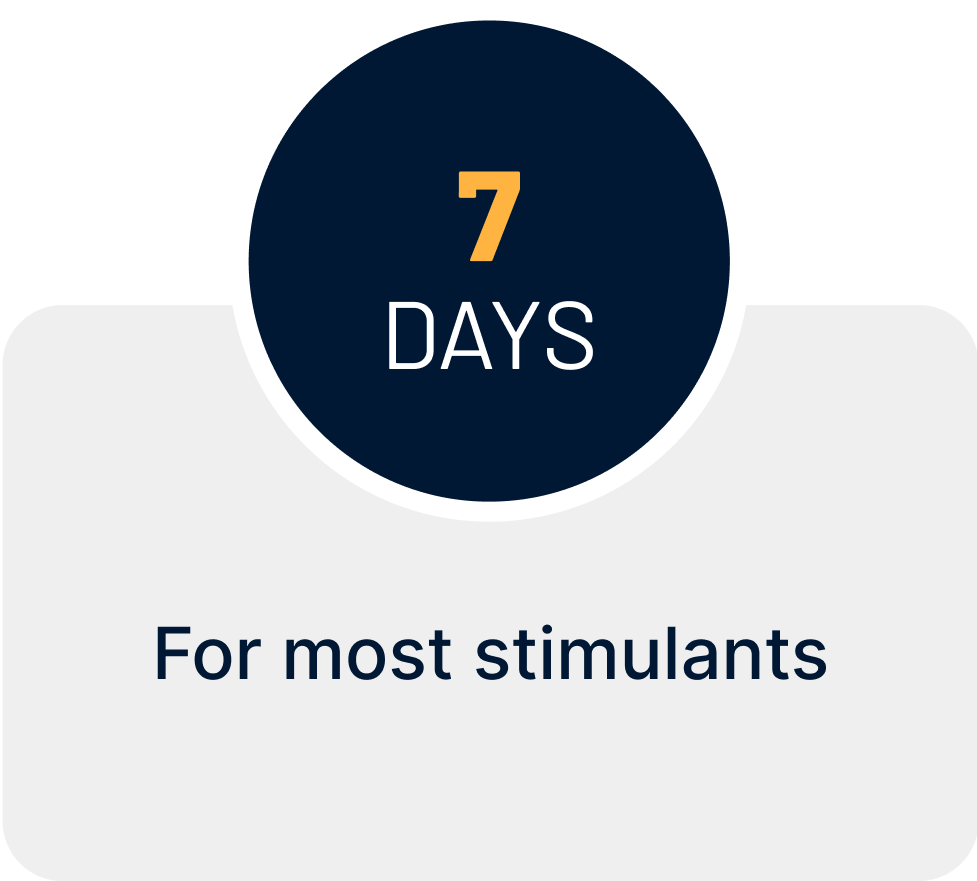
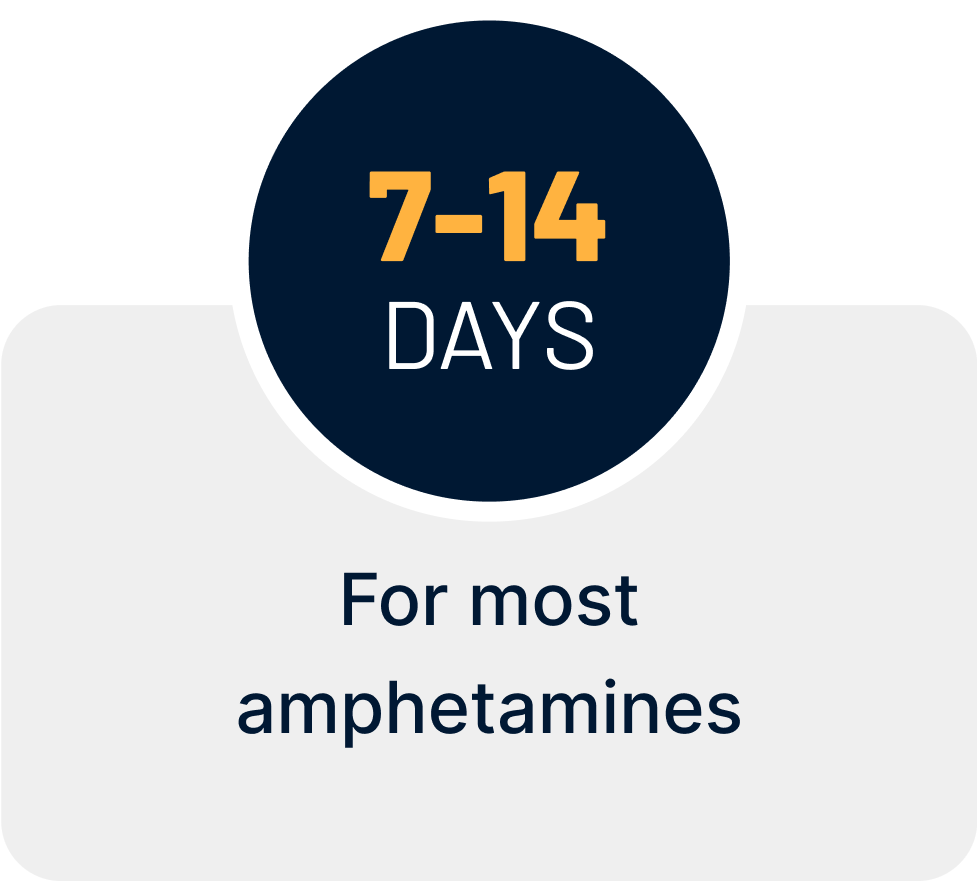


In addition, if you’re addicted to a benzodiazepine, you may be asked to go onto a tapering schedule. This can significantly extend the detox period, because you will sometimes spend several weeks on detox instead of the standard 7-14 days.
Asana Recovery provides intimate residential treatment in Orange County, California, with no more than 6 clients per facility to ensure highly personalized care. Our comprehensive treatment approach combines evidence-based therapies with holistic healing methods to address addiction and co-occurring mental health disorders
Our program utilizes multiple therapeutic modalities including Cognitive Behavioral Therapy (CBT), Dialectical Behavior Therapy (DBT), group therapy, and family therapy sessions. These core treatments are enhanced by holistic therapies such as art therapy, yoga, mindfulness practices, and recreational activities. Their biological, psychological, and social (BPS) approach creates an integrated healing environment where clients can develop essential recovery skills while receiving individualized attention from the clinical team.

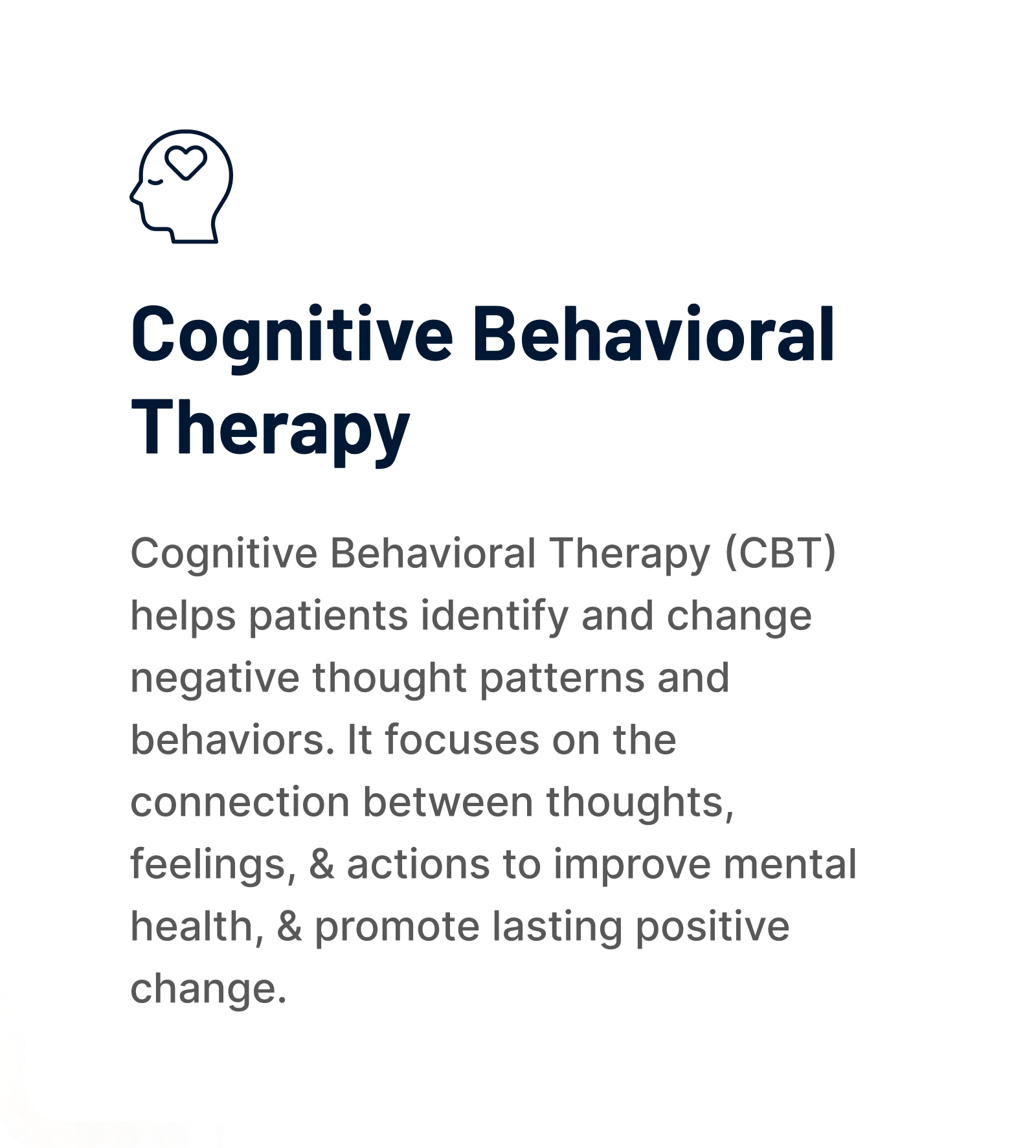

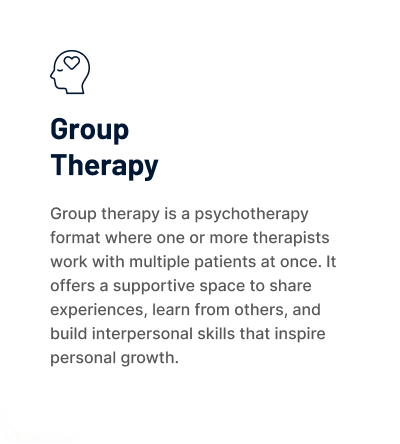
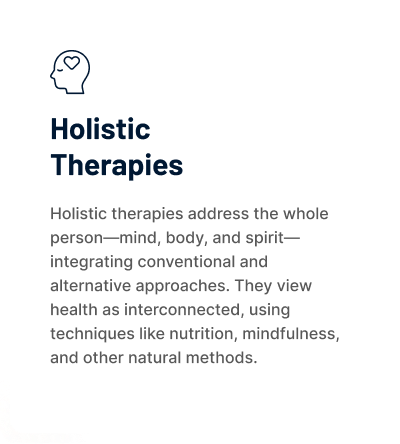


Research shows that approximately 50% of individuals with substance use disorders have co-occurring mental health conditions. This high rate of comorbidity requires an integrated treatment approach, as both conditions significantly impact each other. When mental health issues go untreated, substance abuse typically worsens, and conversely, substance use can exacerbate mental health problems.
Many individuals develop substance use problems while attempting to self-medicate symptoms of depression, anxiety, or trauma. Studies indicate that only 8.3% of adults with co-occurring disorders receive integrated treatment for both conditions
The most effective approach is concurrent treatment of both mental health and addiction by the same clinical team, which leads to better outcomes, reduced relapse rates, and improved long-term recovery success.

Research shows that addressing physical health and nutrition during substance use disorder treatment is crucial for recovery success. Poor nutrition and physical health issues can lead to treatment dropout and increased relapse risk, while improvements in physical health enhance motivation and quality of life during addiction treatment.
Substance use typically leads to nutrient deficiencies, damaged organs, decreased immunity, and poor eating patterns. These issues can threaten both physical and mental health, impacting vital organs and the nervous system. Additionally, different substances affect nutrition and metabolism differently – opioids impact gastrointestinal function, stimulants reduce appetite, and alcohol can cause severe nutritional deficiencies.
Treatment at Asana Recovery includes a nutritional assessment, balanced meals, and physical health monitoring to support healing and maintain long-term recovery.

Research shows that addressing spiritual health during substance use disorder treatment is a significant factor in recovery success. Studies indicate that spirituality can be approached through various pathways, including traditional 12-step programs like AA, secular programs like SMART Recovery, or holistic approaches that integrate mind, body, and spirit connections.
While AA emphasizes spiritual awakening as a key recovery mechanism, SMART Recovery offers a science-based alternative that allows individuals to incorporate their own spiritual beliefs as they see fit. Holistic approaches acknowledge that spiritual wellness, alongside physical and mental health, plays a vital role in comprehensive healing
Studies demonstrate that individuals who engage in spiritual practices during treatment show better outcomes, regardless of their chosen spiritual path. The key is providing options that respect individual beliefs.
A mental health disorder will almost always mean that you need long-term care and treatment to stay in recovery. At Asana Recovery, we understand that you should always have someone to talk to in case things go wrong. Mental health disorders will always mean that you will have bad days, you are more vulnerable to relapse, and you need ongoing mental healthcare and counseling. Asana Recovery can help you on this journey, offering support, ongoing counseling, and help finding local support groups.
Every aspect of dual diagnosis treatment has to be personalized to treat your specific mental health problems, as they impact you when you move into treatment and as you progress through treatment. At Asana Recovery, we take that seriously.


Partial Hospitalization Program (PHP) is an intensive outpatient treatment option that bridges the gap between inpatient care and traditional outpatient services. The program typically operates 5-7 days per week, with sessions lasting 4-6 hours daily, providing a minimum of 20 hours of weekly treatment.
During PHP, patients receive comprehensive care including individual therapy, group therapy, medication management, and psychiatric services while returning home each evening. This allows them to maintain daily responsibilities while receiving structured treatment. The program is ideal for individuals who have completed inpatient care, need more support than traditional outpatient treatment, or have a stable living environment but require intensive therapeutic intervention.
Intensive Outpatient Program (IOP) is a structured treatment option that bridges the gap between inpatient care and traditional outpatient services. The program typically provides 9-19 hours of weekly treatment while allowing clients to maintain their daily responsibilities like work, school, or family obligations.
IOP offers comprehensive care through various therapeutic interventions, including individual counseling, group therapy, family therapy, and psychoeducation sessions. Treatment focuses on substance use disorders, mental health conditions, or co-occurring disorders that don’t require 24-hour supervision or medical detoxification..

Start your recovery journey with us at Asana Recovery, where we prioritize your well-being and provide a welcoming environment for you to heal.
Begin your healing journey today. Fill out the confidential form to find out if your insurance covers you for treatment.
Depression, also known as major depressive disorder or clinical depression, is a common mental health condition that significantly impacts an individual’s mood, behavior, and physical health. It goes far beyond the occasional sadness or emotional downturns that everyone experiences. Depression is characterized by persistent feelings of sadness, emptiness, or hopelessness, often accompanied by a loss of interest or pleasure in activities once enjoyed. These symptoms must persist for at least two weeks and interfere with daily functioning to be classified as a depressive episode.
While sadness is a natural emotional response to life’s challenges or losses, depression is a medical condition with complex psychological, physical, and social symptoms. Sadness is typically temporary and tied to specific events, whereas depression can occur without an identifiable trigger and persists over time. Depression alters brain chemistry and function, leading to profound changes in mood, cognition, and energy levels that disrupt everyday life. For example, someone experiencing depression may struggle with feelings of worthlessness, difficulty concentrating, changes in appetite or sleep patterns, and even thoughts of self-harm or suicide.
Depression is a widespread condition that affects people of all ages and backgrounds. According to recent statistics, approximately 7% of adults in the United States experience depression annually. Globally, it is the leading cause of disability and contributes significantly to the overall burden of disease. Despite its prevalence, depression remains underdiagnosed and undertreated due to stigma and a lack of awareness about mental health.
Understanding depression as a medical condition rather than a personal failing is crucial for reducing stigma and encouraging individuals to seek help. Treatments such as therapy, medication, lifestyle changes, and support systems can significantly improve outcomes for those living with depression.
Depression is a complex mental health condition that manifests in various ways, affecting individuals emotionally, physically, and behaviorally. Understanding the signs and symptoms of depression is crucial for early recognition and intervention, which can prevent the condition from worsening.
Emotional symptoms of depression often include persistent feelings of sadness, hopelessness, and emptiness. Individuals may experience overwhelming guilt or worthlessness, irritability, and frustration over minor issues. The enjoyment derived from activities that once brought joy may diminish, leading to a sense of numbness or detachment from life. Some may find themselves feeling tearful or restless, struggling to relate to others or feeling isolated in their experiences.
The physical manifestations of depression can be just as debilitating as the emotional ones. Common physical symptoms include chronic fatigue, sleep disturbances (such as insomnia or hypersomnia), and changes in appetite that can lead to significant weight loss or gain. Individuals may also experience unexplained aches and pains, headaches, or gastrointestinal issues. These symptoms can contribute to a general sense of being unwell and can hinder daily functioning.
Behaviorally, depression can lead to withdrawal from social interactions and a decline in work or academic performance. Individuals may neglect responsibilities and hobbies that they previously enjoyed. This withdrawal can create a cycle of isolation that exacerbates feelings of loneliness and despair. Additionally, some may resort to substance use as a coping mechanism, further complicating their mental health.
The symptoms of depression vary widely among individuals and can range from mild to severe. Some people may experience only a few symptoms at a low intensity, while others may find their lives significantly disrupted by more severe manifestations. This variability means that what is considered “normal” for one person may be entirely different for another. Recognizing this spectrum is essential for understanding how depression affects different individuals.
Early recognition of depression is critical in preventing the condition from escalating. Identifying the initial signs—such as persistent sadness, changes in appetite or sleep patterns, and social withdrawal—can prompt individuals to seek help sooner rather than later. Timely intervention often leads to better outcomes, allowing individuals to regain control over their lives and improve their overall well-being.
In conclusion, understanding the signs and symptoms of depression is vital for both individuals experiencing these feelings and those around them. By fostering awareness and encouraging open discussions about mental health, we can create an environment where seeking help becomes a priority rather than a stigma.
Depression is a complex mental health disorder that manifests in various forms, each with distinct characteristics and symptoms. Understanding these types can aid in proper diagnosis and treatment. Here, we explore the major types of depression, highlighting their unique features.
Major Depressive Disorder (MDD) is marked by persistent feelings of sadness and a significant loss of interest in activities that were once enjoyable. To be diagnosed with MDD, individuals must experience at least five specific symptoms over a two-week period. These symptoms can include changes in sleep patterns, appetite fluctuations, fatigue, difficulty concentrating, feelings of worthlessness or guilt, and recurrent thoughts of death or suicide. MDD can be a recurrent condition, with episodes occurring monthly, yearly, or sporadically throughout a person’s life.
Previously known as dysthymia, Persistent Depressive Disorder involves chronic symptoms of depression that last for two years or more. Although the symptoms are generally milder than those of MDD, they can still significantly impair daily functioning and quality of life. Individuals may experience low self-esteem, hopelessness, and a pervasive sense of sadness that colors their everyday experiences.
Seasonal Affective Disorder (SAD) is a type of depression that correlates with seasonal changes, primarily affecting individuals during the fall and winter months when daylight hours are shorter. Symptoms typically improve with the arrival of spring and summer. While less common, some individuals may also experience depressive episodes during the summer. The underlying cause is believed to be related to changes in light exposure that affect circadian rhythms and serotonin levels.
Postpartum Depression occurs in new mothers following childbirth. It is characterized by severe mood swings, exhaustion, anxiety, and feelings of inadequacy regarding motherhood. Affecting approximately one in nine women after giving birth, this form of depression can arise within weeks after delivery and may persist for months if left untreated. It is crucial for new mothers to seek support as they navigate this challenging period.
Atypical Depression presents with unique symptoms that differentiate it from other forms of depression. Individuals may experience mood reactivity—feeling better in response to positive events—alongside increased appetite or weight gain and excessive sleepiness. Additionally, those with atypical depression often exhibit heightened sensitivity to rejection, which can complicate social interactions and relationships.
This type of depression arises as a consequence of chronic medical conditions such as diabetes, cancer, or heart disease. The stress and challenges associated with managing these illnesses can lead to significant emotional distress and depressive symptoms. Treatment for this form of depression often requires an integrated approach that addresses both the medical condition and the mental health aspects.
In summary, recognizing the different types of depression is vital for effective treatment and support. Each type presents its own set of challenges but understanding these distinctions can empower individuals to seek appropriate help and improve their overall well-being.
Depression is a complex mental health disorder that can arise from a multitude of factors, often intertwining biological, genetic, environmental, and lifestyle elements. Understanding these causes is crucial for effective treatment and support.
One of the primary biological contributors to depression is the imbalance of neurotransmitters in the brain, particularly serotonin and dopamine. These chemicals play a significant role in regulating mood, and their dysfunction can lead to symptoms of depression. Research indicates that individuals with depression may exhibit physical changes in their brains, suggesting that alterations in brain chemistry and structure can significantly influence mood regulation. However, it is essential to note that depression is not simply a result of having too much or too little of specific neurotransmitters; rather, it involves a complex interplay of various chemicals and neural circuits responsible for maintaining emotional stability.
Genetics also plays a vital role in the development of depression. Family history can increase an individual’s risk, as certain genetic traits associated with mood disorders may be inherited. While having a relative with depression does not guarantee that one will experience it, the likelihood increases, especially if combined with other risk factors such as stressful life events or personal challenges. Researchers are actively exploring specific genes that may contribute to this vulnerability, aiming to better understand how genetic makeup influences mental health.
Environmental influences are significant contributors to depression. Stressful life events—such as bereavement, divorce, job loss, or financial difficulties—can trigger depressive episodes. Additionally, chronic stressors like long-term unemployment or living in an abusive relationship can exacerbate feelings of hopelessness and despair. Lifestyle choices also play a crucial role; isolation from social networks and lack of support can further deepen depressive symptoms. Engaging in activities that promote social interaction and emotional connection is essential for mitigating these risks.
Certain medical conditions can also predispose individuals to depression. Chronic illnesses such as heart disease or diabetes often coexist with depressive symptoms due to the stress and lifestyle changes they impose. Hormonal imbalances, particularly those related to thyroid function or during significant life transitions like menopause or postpartum periods, can also trigger depressive episodes. Furthermore, head injuries have been linked to mood disorders, highlighting the importance of considering physical health when addressing mental well-being.
The use of medication and substances can significantly impact mental health as well. Some medications—such as corticosteroids or certain antiviral drugs—are known to have side effects that include depressive symptoms. Moreover, substance misuse is a common co-occurring issue with depression; individuals may turn to alcohol or drugs as a coping mechanism for emotional pain but often find that these substances exacerbate their depressive feelings over time. This cycle can create a downward spiral that complicates recovery efforts.
In conclusion, depression arises from a multifaceted interplay of biological, genetic, environmental, lifestyle factors, medical conditions, and substance use. Recognizing this complexity is essential for developing effective treatment strategies tailored to individual needs. Understanding the various causes not only aids in personal recovery but also fosters empathy towards those experiencing this challenging condition.
Asana Recovery offers a comprehensive and personalized approach to treating depression, recognizing that each individual has unique needs. The facility emphasizes tailored treatment plans that focus on the specific circumstances and challenges faced by each patient. By conducting thorough assessments, the clinical team crafts individualized strategies that incorporate various therapeutic modalities, ensuring that every aspect of a person’s mental health is addressed.
At Asana Recovery, the cornerstone of effective treatment lies in the customization of care. Each patient undergoes an initial assessment to identify their specific struggles, preferences, and goals. This personalized approach not only enhances engagement in the treatment process but also increases the likelihood of successful outcomes. The team understands that mental health issues can be complex and multifaceted, thus creating a unique plan for each individual is essential for fostering healing.
Asana Recovery employs a range of evidence-based therapies to address depression effectively. Cognitive Behavioral Therapy (CBT) is utilized to help individuals identify and change negative thought patterns that contribute to their depression. Dialectical Behavior Therapy (DBT) focuses on teaching coping skills and emotional regulation, which are crucial for those experiencing intense emotional distress. Additionally, interpersonal therapy is offered to improve interpersonal relationships and social functioning, further supporting individuals on their path to recovery.
For patients who have not found relief through traditional therapies, Asana Recovery provides advanced interventions designed to target treatment-resistant depression.
Transcranial Magnetic Stimulation (TMS) is one such intervention that uses magnetic fields to stimulate nerve cells in the brain. This non-invasive procedure has shown promise for individuals who have not responded adequately to conventional treatments.
Electroconvulsive Therapy (ECT) is another option available at Asana Recovery. While it may sound daunting, ECT has been proven safe and effective for severe depression cases. The procedure involves passing small electrical currents through the brain, inducing a brief seizure that can lead to significant improvements in mood.
Vagus Nerve Stimulation (VNS) is also utilized in severe cases of depression where other treatments have failed. This method involves implanting a device that sends electrical signals to the vagus nerve, which can help regulate mood and alleviate depressive symptoms.
In addition to traditional therapies, Asana Recovery recognizes the importance of holistic approaches in treating depression. Complementary therapies such as acupuncture and yoga are integrated into treatment plans to promote overall well-being. These practices can enhance relaxation, reduce stress, and improve emotional balance.
Nutrition and exercise are also emphasized as adjunct treatments. Proper nutrition plays a vital role in mental health, while regular physical activity has been shown to boost mood and reduce symptoms of depression. By incorporating these elements into their programs, Asana Recovery aims to support patients in achieving a balanced lifestyle conducive to recovery.
Overall, Asana Recovery stands out for its commitment to providing specialized depression treatment through personalized plans, evidence-based therapies, advanced interventions, and complementary approaches. This comprehensive strategy not only addresses the symptoms of depression but also fosters long-term healing and wellness for individuals on their journey toward recovery.

Depression, clinically known as major depressive disorder (MDD), is a complex mental health condition that significantly impacts an individual’s thoughts, feelings, and daily functioning. The diagnostic process for depression is multifaceted, primarily relying on established criteria and professional assessments rather than definitive laboratory tests.
The diagnosis of depression typically follows the guidelines set forth in the Diagnostic and Statistical Manual of Mental Disorders, Fifth Edition (DSM-5). According to the DSM-5 criteria, a diagnosis requires the presence of at least five specific symptoms over a two-week period, with one of those symptoms being either a depressed mood or a loss of interest or pleasure in most activities. The symptoms include changes in weight or appetite, sleep disturbances, fatigue, feelings of worthlessness or excessive guilt, difficulty concentrating, psychomotor agitation or retardation, and recurrent thoughts of death or suicide.
While there are no laboratory tests specifically designed to diagnose depression, medical evaluations often include tests to rule out other conditions that may mimic depressive symptoms. These tests may involve blood work to assess thyroid function, vitamin levels, and overall health indicators. For instance, a complete blood count (CBC) and thyroid-stimulating hormone (TSH) levels are commonly checked to exclude hypothyroidism or other medical issues that can contribute to depressive symptoms.
Professional assessments play a crucial role in identifying the type and severity of depression. Mental health professionals conduct thorough evaluations that encompass not only symptom assessment but also personal and family medical histories. This comprehensive approach helps differentiate between various types of depression—such as major depressive disorder, dysthymic disorder, and others—ensuring that individuals receive appropriate treatment tailored to their specific needs.
Standardized screening tools are often utilized during these assessments. Instruments like the Patient Health Questionnaire-9 (PHQ-9) and the Hamilton Depression Rating Scale (HAM-D) provide structured formats for evaluating the severity of depressive symptoms. These questionnaires enhance the diagnostic process by quantifying symptom presence and impact on daily life.
In addition to symptom assessment, healthcare providers may gather collateral information from family members or close friends to gain further insights into the individual’s behavior and mood changes. This holistic approach not only aids in accurate diagnosis but also assists in developing effective treatment plans that address both psychological and physical health aspects.
In conclusion, diagnosing depression is a nuanced process that combines clinical criteria with professional assessments. By understanding the various dimensions involved in this process, individuals can better navigate their mental health journeys and access the support they need for recovery.
Early intervention in healthcare, particularly in mental health and substance use disorders, is crucial for improving outcomes and enhancing quality of life. By addressing issues promptly, individuals can prevent the escalation of symptoms, improve their daily functioning, and reduce the risks associated with long-term health effects.
One of the primary benefits of seeking specialized treatment early is the ability to prevent the worsening of symptoms. When individuals receive timely care, they are less likely to experience the progression of their conditions. Early intervention allows healthcare providers to implement appropriate therapies and support systems that address issues before they become more severe. This proactive approach can significantly reduce the likelihood of complications that arise from untreated conditions.
Another significant advantage of early treatment is the improvement in quality of life and daily functioning. Individuals who engage in early intervention often report enhanced self-esteem, confidence, and overall well-being. By receiving tailored support that addresses their unique needs, they can develop essential skills for daily living, which fosters greater independence. This not only helps individuals manage their conditions more effectively but also allows them to participate more fully in their personal and professional lives.
Moreover, early intervention programs often focus on promoting healthy habits and behaviors, such as nutrition and physical activity. These lifestyle changes contribute to better mental and physical health outcomes, further enhancing an individual’s quality of life.
Seeking specialized treatment early can also significantly reduce the risks associated with long-term effects, such as chronic health conditions or even suicide. Research indicates that early intervention can mitigate the impact of mental health disorders by providing immediate support and resources. This is particularly important for young individuals who may be navigating critical developmental stages. By addressing mental health concerns promptly, families can help prevent the negative consequences that often accompany untreated conditions.
Additionally, early intervention has been shown to decrease the likelihood of relapse and hospitalization among individuals with severe mental illnesses. By fostering a supportive environment and providing ongoing care, healthcare providers can help individuals maintain stability in their lives.
In summary, seeking specialized treatment early is essential for preventing symptom escalation, improving quality of life, and reducing long-term risks associated with various health conditions. The benefits extend beyond individual well-being to encompass broader societal impacts, making early intervention a vital component of effective healthcare strategies.
Living with depression can be an overwhelming experience, but understanding effective coping strategies and the importance of support can significantly improve one’s quality of life. This blog post explores valuable self-care tips, the necessity of a strong support system, and the encouragement to seek help while destigmatizing mental health treatment.
Self-care is a crucial aspect of managing depression. Incorporating regular exercise into your routine can be particularly beneficial. Physical activity releases endorphins, the body’s natural mood lifters, and can enhance overall well-being. You don’t need to engage in intense workouts; even simple activities like walking or yoga can make a substantial difference. Finding an enjoyable form of exercise can motivate you to stay active consistently.
Quality sleep is another vital component of self-care. Depression often disrupts sleep patterns, leading to fatigue and irritability. Establishing a regular sleep schedule and creating a restful environment can help improve sleep quality. Practicing relaxation techniques before bed, such as deep breathing or meditation, can also promote better sleep.
In addition to physical health, mindfulness practices play a significant role in managing depression. Mindfulness involves focusing on the present moment and accepting thoughts and feelings without judgment. Techniques such as meditation or guided imagery can help reduce stress and enhance emotional regulation. By dedicating a few minutes each day to mindfulness, individuals can cultivate a greater sense of peace and awareness.
Having a strong support system is essential for those living with depression. Isolation often exacerbates feelings of loneliness and despair, making it important to maintain connections with friends and family. Engaging in social activities, even when motivation is low, can provide emotional relief and foster a sense of belonging.
Support from loved ones can take many forms, including simply listening without judgment or participating in shared activities that bring joy. Additionally, volunteering or helping others can boost your mood by shifting focus away from personal struggles while fostering connections with the community.
Seeking professional help is a critical step in managing depression effectively. Therapy provides a safe space to explore feelings and develop coping strategies tailored to individual needs. Cognitive Behavioral Therapy (CBT) and other therapeutic approaches have been shown to be particularly effective in treating depression.
It is equally important to destigmatize mental health treatment. Open conversations about mental health challenges can encourage others to seek help without fear of judgment. Understanding that depression is a medical condition—much like any physical ailment—can empower individuals to prioritize their mental well-being.
California stands out as a premier destination for specialized depression treatment, thanks to its commitment to innovative mental health care. The state’s approach integrates cutting-edge facilities, progressive mental health policies, and access to leading specialists, making it a hub for those seeking effective treatment options.
California’s mental health care system is characterized by its emphasis on innovation and personalized treatment. The state has established various initiatives aimed at enhancing mental health services through research and development. Notably, the California Initiative to Advance Precision Medicine (CIAPM) focuses on tailoring treatments to individual needs, thereby improving outcomes for those suffering from depression. This initiative not only supports innovative research but also aims to reduce health inequities by addressing the specific challenges faced by vulnerable populations.
Moreover, California’s Mental Health Services Act (MHSA) plays a crucial role in fostering innovation. It mandates that counties allocate a portion of their funds to innovative projects that explore new approaches to mental health care. This has led to a variety of programs designed to improve service delivery and address the unique needs of individuals with mental health challenges.
The state is home to numerous state-of-the-art facilities equipped with the latest technology and resources necessary for effective treatment. These centers often incorporate evidence-based practices and are staffed by leading specialists in the field of mental health. Patients benefit from a multidisciplinary approach, which includes psychiatrists, psychologists, social workers, and other professionals working collaboratively to provide comprehensive care.
In addition to physical resources, California’s mental health infrastructure is bolstered by progressive policies that prioritize accessibility and quality of care. This includes efforts to expand telehealth services, ensuring that individuals can receive support regardless of their location. The integration of technology into mental health services has been particularly beneficial in reaching underserved communities and addressing barriers related to stigma and access.
Southern California, in particular, emerges as an ideal location for accessing mental health resources. The region boasts a diverse population and supportive communities that foster an environment conducive to healing and recovery. With a range of organizations dedicated to mental health advocacy and support, individuals seeking treatment often find a welcoming network ready to assist them.
Furthermore, Southern California’s advanced healthcare networks facilitate collaboration among various providers, ensuring that patients receive holistic care tailored to their needs. This interconnected system allows for seamless referrals between specialists and comprehensive treatment plans that address both physical and mental health concerns.
Orange County, California, is not just known for its stunning beaches and vibrant communities; it also offers a unique landscape for mental health care, particularly for those seeking treatment for depression. The region is home to world-class facilities and experienced clinicians who specialize in various aspects of mental health, creating a supportive environment for recovery.
One of the standout benefits of receiving mental health care in Orange County is the proximity to top-tier treatment centers. Facilities like First Light Recovery and Enhance Health Group provide comprehensive services tailored to individual needs. These centers are equipped with state-of-the-art resources and staffed by licensed professionals who understand the complexities of mental health disorders. Patients can access a range of treatment options, including inpatient care, outpatient programs, and innovative therapies like Transcranial Magnetic Stimulation (TMS). This accessibility ensures that individuals can receive timely and effective care without having to travel far from their homes.
The expertise available in Orange County is another significant advantage. Many clinicians in the area are not only well-trained but also specialize in treating mood disorders such as depression. For instance, programs at facilities like True Life Center emphasize integrative approaches that combine psychotherapy with holistic practices like yoga and mindfulness. This multidisciplinary focus allows for personalized treatment plans that cater to the unique needs of each patient. Moreover, the collaborative environment among healthcare providers enhances the quality of care, ensuring that patients receive comprehensive support throughout their recovery journey.
The natural beauty of Orange County plays a vital role in the therapeutic process. With its picturesque coastline and numerous parks, patients can engage in nature-based therapies that promote healing and well-being. Activities such as beach walks, hiking, and outdoor yoga sessions not only provide physical benefits but also foster a sense of connection to nature, which can be incredibly restorative for mental health. Facilities often incorporate these elements into their treatment programs, recognizing the importance of a holistic approach that addresses both mind and body.
In addition to individual treatment centers, Orange County boasts a robust network of mental health resources. Community organizations work tirelessly to provide support and education about mental health issues. These resources include support groups, educational workshops, and outreach programs aimed at reducing stigma around mental illness. The collaborative efforts among local organizations create an environment where individuals feel empowered to seek help without fear of judgment.
As we move into 2025, the emphasis on local expertise in mental health care continues to grow in Orange County. The combination of world-class facilities, experienced clinicians, access to nature-based therapies, and strong community support makes this region an ideal place for individuals seeking recovery from depression. With these resources at their disposal, residents can embark on their journey toward healing with confidence and hope.
In recent years, the emphasis on mental health and wellness has surged, with various cities adopting unique approaches to support their communities. This article delves into three cities in California—Costa Mesa, Fountain Valley, and Huntington Beach—each known for their distinct mental health services and holistic care options.
Costa Mesa has garnered a reputation for its holistic and wellness-focused healthcare services. The city is home to several centers that prioritize treating individuals as whole beings rather than merely addressing specific symptoms. Facilities such as the South Coast Behavioral Health and the Cohn Health Institute provide a range of holistic therapies, including chiropractic care, nutrition counseling, and mental health support. These centers emphasize the importance of integrating physical, emotional, and spiritual well-being into treatment plans.
Among the notable services available in Costa Mesa are outpatient clinics that offer personalized care tailored to individual needs. For instance, Pilar’s Wellness Collective features a variety of holistic health specialists, including herbalists and acupuncturists, who contribute to a comprehensive approach to wellness. Additionally, support groups are prevalent in the area, allowing individuals to connect with others facing similar challenges and fostering a sense of community during recovery.
Fountain Valley stands out for its family-friendly mental health services and community-based care options. The city prioritizes creating an environment where families can access essential mental health resources without stigma. Local therapy centers focus on addressing issues such as depression through various therapeutic modalities tailored for both adults and children.
One prominent facility in Fountain Valley is the Brain Wellness Institute, which provides outpatient psychological services including individual, couples, and group therapy. This center is dedicated to offering a safe space for families to navigate their mental health journeys together. The community-based approach ensures that residents have access to supportive resources that promote overall well-being.
Huntington Beach is not only known for its stunning coastline but also for how its serene beach environment aids in mental health recovery. The calming ocean waves and natural beauty play a significant role in fostering relaxation and healing for those seeking wellness.
Several wellness retreats and therapy centers in Huntington Beach capitalize on this tranquil setting. Group therapy sessions often take place outdoors or in settings that encourage connection with nature, enhancing the therapeutic experience. Facilities like Atlas Chiropractic & Wellness Center offer holistic treatments that combine physical therapy with mental health support, creating a comprehensive healing environment.
In conclusion, Costa Mesa, Fountain Valley, and Huntington Beach each provide unique contributions to mental health care through their respective approaches—holistic healing in Costa Mesa, family-centered services in Fountain Valley, and nature-inspired recovery in Huntington Beach. These cities exemplify how tailored mental health services can foster community support and individual well-being.
At Asana Recovery, we believe that seeking help is the most powerful step toward overcoming depression and reclaiming your life. Our specialized depression treatment programs in California, including Orange County, Costa Mesa, Fountain Valley, and Huntington Beach, are designed to address your unique challenges with personalized care. Whether you’re navigating major depressive disorder, persistent depressive disorder, or treatment-resistant depression, our expert team is here to guide you with compassion and evidence-based therapies. Don’t let depression hold you back any longer—connect with us today to start your journey toward healing and a brighter future.
Contact Asana Recovery now to schedule a free consultation and learn how our tailored approach to depression treatment can support your recovery. Your path to wellness starts here.

Depression disrupts daily life by sapping energy and motivation, making routine tasks—like getting out of bed or attending work—feel insurmountable. It can impair cognitive functions like memory and decision-making, which hampers productivity and personal responsibilities. In relationships, depression often manifests as withdrawal, irritability, or difficulty communicating emotions. Loved ones may feel rejected or uncertain about how to offer support, creating tension or distance. This cyclical pattern of isolation and strained interactions can further deepen depressive symptoms, underscoring the importance of seeking timely treatment and fostering open communication.
Depression often causes physical symptoms that might be mistaken for other health conditions. Common issues include chronic fatigue, changes in sleep patterns (insomnia or oversleeping), and fluctuations in appetite leading to weight loss or gain. It may also present as unexplained aches, headaches, or digestive problems. Psychomotor changes, such as restlessness or slowed movements, are frequently observed. Over time, these physical manifestations compound the emotional toll of depression, making it essential to address both the mental and physical aspects of the condition in treatment.
Children and teenagers often experience depression differently than adults. Instead of persistent sadness, they may show irritability, anger, or behavioral changes like declining school performance or withdrawing from peers. Physical complaints, such as headaches or stomachaches, are more common in young people, and they might struggle to articulate feelings of despair. Adolescents may also exhibit risky behaviors or heightened sensitivity to rejection. Recognizing these differences is vital to ensure early diagnosis and intervention tailored to younger populations.
A prevalent myth is that depression is simply sadness or a personal weakness. In reality, depression is a complex medical condition influenced by brain chemistry, genetics, and environmental factors. Another misconception is that individuals can “snap out of it” with willpower alone; this dismisses the need for professional intervention. Some believe antidepressants are a one-size-fits-all solution, yet treatment often requires a blend of medication and therapy. Overcoming these stigmas is crucial for fostering understanding and encouraging those affected to seek help without shame.
Depression is diagnosed using the DSM-5 criteria, which require at least five symptoms—such as persistent sadness, fatigue, changes in sleep or appetite, and suicidal thoughts—persisting for two weeks. A clinical interview assesses emotional, cognitive, and behavioral symptoms alongside life history. Screening tools like the PHQ-9 or Beck Depression Inventory help quantify symptom severity. Doctors may also perform blood tests to rule out underlying medical issues like thyroid dysfunction. This thorough approach ensures accurate diagnosis and effective treatment planning.
Sadness is a natural reaction to life events and typically subsides with time or positive experiences. Depression, however, persists for weeks or months, affecting mood, cognition, and physical health. While sadness allows for moments of joy, depression often creates an all-encompassing sense of despair and loss of interest in previously enjoyable activities. Recognizing prolonged symptoms that disrupt daily functioning is crucial for distinguishing depression from transient sadness and seeking professional support.
Orange County offers a range of specialized mental health services in tranquil, picturesque settings that promote healing. Facilities in the area emphasize holistic care, combining traditional therapies with complementary approaches like yoga or nature-based activities. Access to expert clinicians and community support networks ensures comprehensive care tailored to individual needs. Additionally, group therapy opportunities foster connections, reducing isolation and enhancing recovery outcomes.
Fountain Valley offers several family-centered mental health resources. NAMI Orange County provides educational courses and support groups for families navigating mental health challenges. Facilities like Anew Era TMS & Psychiatry and South Coast Community Services offer family therapy sessions and tailored treatment programs. Schools in the area often collaborate with mental health providers to ensure children and families have access to essential resources, making Fountain Valley a supportive environment for mental health care.
Early intervention significantly improves mental health outcomes by preventing symptoms from worsening and reducing the likelihood of complications like substance misuse or chronic conditions. It promotes emotional resilience, improves daily functioning, and supports healthy development in children and adolescents. By addressing issues early, individuals can achieve better educational, social, and professional outcomes, while families experience less strain. This proactive approach also reduces healthcare costs and societal burdens over time.
Mindfulness can be seamlessly integrated into daily life through simple practices like starting the day with deep breathing exercises or mindful intention setting. Eating meals without distractions and savoring each bite promotes mindful eating. Pausing for short breathing exercises during the day and focusing on sensory experiences, like the feel of sunlight or sounds of nature, encourages present-moment awareness. Evening reflections on positive moments or gratitude further solidify mindfulness as a cornerstone of mental well-being.

Asana Recovery
We firmly believe that the internet should be available and accessible to anyone, and are committed to providing a website that is accessible to the widest possible audience, regardless of circumstance and ability.
To fulfill this, we aim to adhere as strictly as possible to the World Wide Web Consortium’s (W3C) Web Content Accessibility Guidelines 2.1 (WCAG 2.1) at the AA level. These guidelines explain how to make web content accessible to people with a wide array of disabilities. Complying with those guidelines helps us ensure that the website is accessible to all people: blind people, people with motor impairments, visual impairment, cognitive disabilities, and more.
This website utilizes various technologies that are meant to make it as accessible as possible at all times. We utilize an accessibility interface that allows persons with specific disabilities to adjust the website’s UI (user interface) and design it to their personal needs.
Additionally, the website utilizes an AI-based application that runs in the background and optimizes its accessibility level constantly. This application remediates the website’s HTML, adapts Its functionality and behavior for screen-readers used by the blind users, and for keyboard functions used by individuals with motor impairments.
If you’ve found a malfunction or have ideas for improvement, we’ll be happy to hear from you. You can reach out to the website’s operators by using the following email
Our website implements the ARIA attributes (Accessible Rich Internet Applications) technique, alongside various different behavioral changes, to ensure blind users visiting with screen-readers are able to read, comprehend, and enjoy the website’s functions. As soon as a user with a screen-reader enters your site, they immediately receive a prompt to enter the Screen-Reader Profile so they can browse and operate your site effectively. Here’s how our website covers some of the most important screen-reader requirements, alongside console screenshots of code examples:
Screen-reader optimization: we run a background process that learns the website’s components from top to bottom, to ensure ongoing compliance even when updating the website. In this process, we provide screen-readers with meaningful data using the ARIA set of attributes. For example, we provide accurate form labels; descriptions for actionable icons (social media icons, search icons, cart icons, etc.); validation guidance for form inputs; element roles such as buttons, menus, modal dialogues (popups), and others. Additionally, the background process scans all the website’s images and provides an accurate and meaningful image-object-recognition-based description as an ALT (alternate text) tag for images that are not described. It will also extract texts that are embedded within the image, using an OCR (optical character recognition) technology. To turn on screen-reader adjustments at any time, users need only to press the Alt+1 keyboard combination. Screen-reader users also get automatic announcements to turn the Screen-reader mode on as soon as they enter the website.
These adjustments are compatible with all popular screen readers, including JAWS and NVDA.
Keyboard navigation optimization: The background process also adjusts the website’s HTML, and adds various behaviors using JavaScript code to make the website operable by the keyboard. This includes the ability to navigate the website using the Tab and Shift+Tab keys, operate dropdowns with the arrow keys, close them with Esc, trigger buttons and links using the Enter key, navigate between radio and checkbox elements using the arrow keys, and fill them in with the Spacebar or Enter key.Additionally, keyboard users will find quick-navigation and content-skip menus, available at any time by clicking Alt+1, or as the first elements of the site while navigating with the keyboard. The background process also handles triggered popups by moving the keyboard focus towards them as soon as they appear, and not allow the focus drift outside it.
Users can also use shortcuts such as “M” (menus), “H” (headings), “F” (forms), “B” (buttons), and “G” (graphics) to jump to specific elements.
We aim to support the widest array of browsers and assistive technologies as possible, so our users can choose the best fitting tools for them, with as few limitations as possible. Therefore, we have worked very hard to be able to support all major systems that comprise over 95% of the user market share including Google Chrome, Mozilla Firefox, Apple Safari, Opera and Microsoft Edge, JAWS and NVDA (screen readers).
Despite our very best efforts to allow anybody to adjust the website to their needs. There may still be pages or sections that are not fully accessible, are in the process of becoming accessible, or are lacking an adequate technological solution to make them accessible. Still, we are continually improving our accessibility, adding, updating and improving its options and features, and developing and adopting new technologies. All this is meant to reach the optimal level of accessibility, following technological advancements. For any assistance, please reach out to